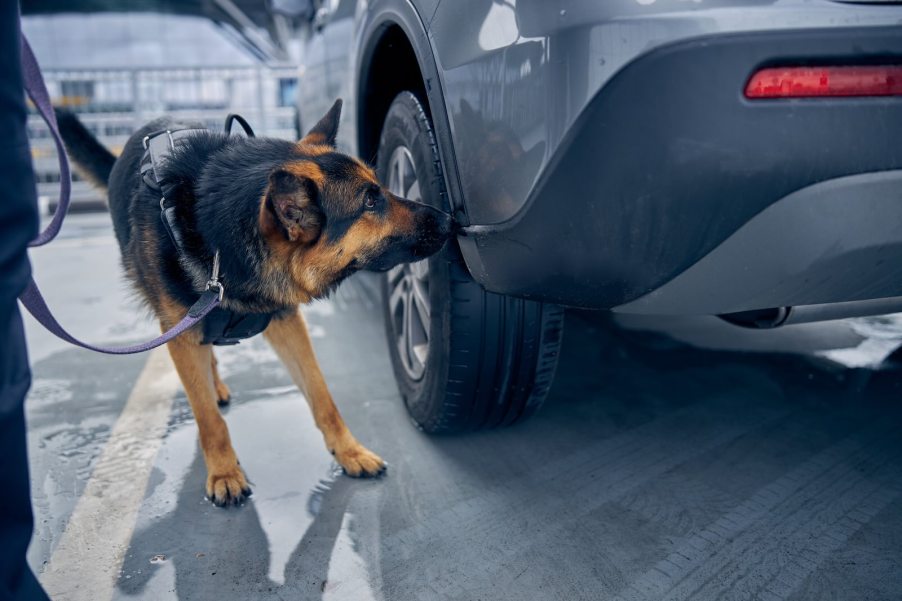
Supreme Court ruled 1 type of traffic checkpoint unconstitutional
So you were driving along the highway the other day and saw a sign that said, “Highway Patrol Checkpoint…Drug Dogs in Use.” You’d be forgiven for assuming you were approaching a checkpoint to search all traffic for drugs. But the truth is much more complicated: even though the Supreme Court has ruled such checkpoints unconstitutional, certain police departments continue to put up these signs and target any vehicles “suspiciously exiting” the highway.
Traffic checkpoints occupy a complex legal territory. According to the “Online Paralegal Programs” website, the Fourth Amendment to the U.S. Constitution protects citizens “against unreasonable searches and seizures” and recent interpretations make it clear the police need “probable cause” to search your vehicle. But the Supreme Court has ruled certain traffic stops constitutional.
DUI checkpoints
The first common type of traffic stop is the DUI checkpoint. Many of us have encountered these: when a police department blocks off a road on Friday or Saturday night to stop every driver and ask, “Have you been drinking tonight?” Depending on the shape of these conversations, they may end up with “probable cause” to request a field sobriety test. But unlike regular stops, they don’t need probable cause to begin the traffic stop (such as the driver swerving or forgetting to use headlights).
Are DUI checkpoints constitutional? When the Supreme Court heard a case arguing this practice violates our Fourth Amendment rights, it defended the practice. The court ruled DUI stops protect from “imminent public danger” and are constitutional.
Border patrol checkpoints
Another common traffic stop is the border patrol checkpoint. Many drivers have been stopped at these checkpoints, many miles from the border.
Not only does the border patrol set up checkpoints on the roads crossing U.S. borders, but the agency has been allowed to patrol a “reasonable distance” or “100-air miles” from the actual border since the Immigration and Nationality Act of 1952. Up to 100 miles from the border, Border Patrol can set up a checkpoint to stop and search all vehicles. And according to a 1976 Supreme Court decision, this doesn’t violate the Fourth Amendment.
Drug search checkpoints
So what about setting up a checkpoint to stop all cars and search them for drugs? Various police departments have attempted this, similar to DUI checkpoints. And of course citizens have challenged the practice. When the Supreme Court ruled on the practice, it found drug checkpoints unconstitutional.
The court wrote, “We cannot sanction stops justified only by the generalized and ever-present possibility that interrogation and inspection may reveal that any given motorist has committed some crime.”



